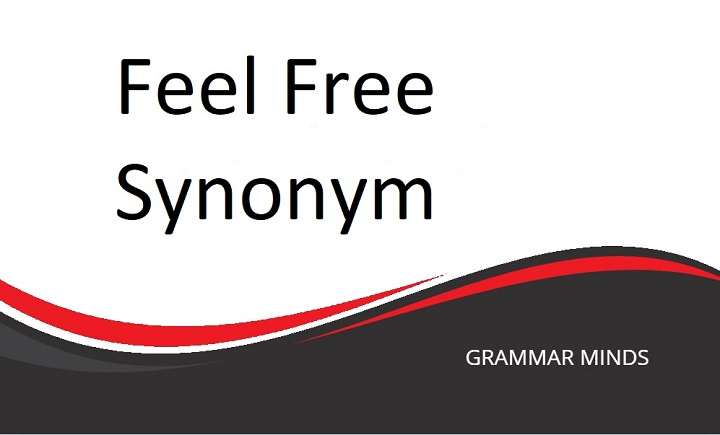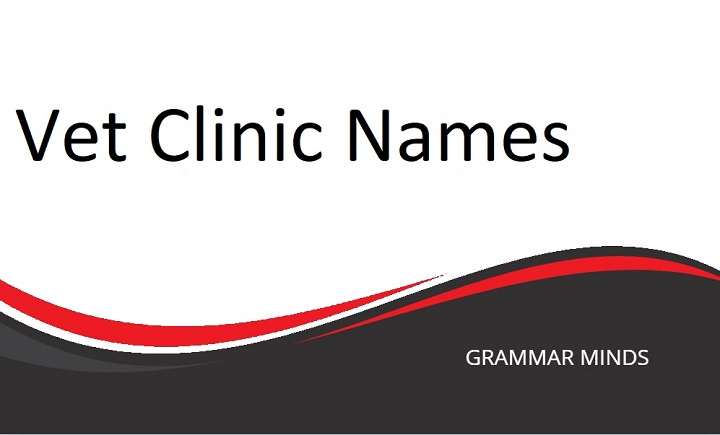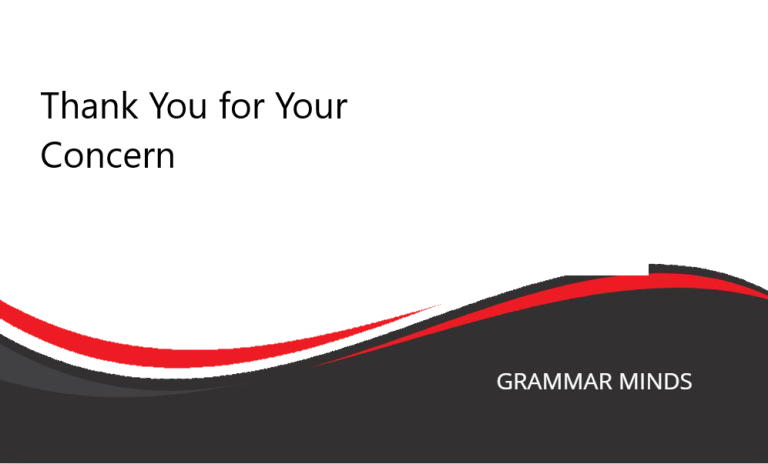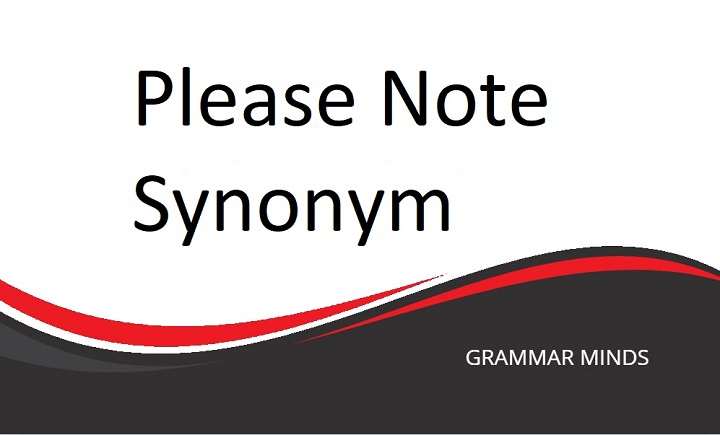Have you ever found yourself using the phrase “feel free” repeatedly in conversations, emails, or messages? While it’s a simple and polite expression, it can become monotonous when used too often, particularly in professional environments. Whether you’re writing to a colleague, addressing a client, or even chatting with friends, repeating the same phrase may not leave the best impression.
Luckily, there are plenty of alternatives you can use to sound more varied and engaging. This article will walk you through a handy list of synonyms for “feel free” that will help freshen up your communication, whether formal or informal. So, let’s dive into some exciting alternatives to “feel free” and explore how to use them in different contexts.
Other Ways to Say “Feel Free”
Go Ahead
Don’t Hesitate
Be My Guest
You’re Welcome to
By All Means
No Need to Ask
Help Yourself
It’s Fine If You
You Have Permission
Please Proceed
Each of these alternatives offers a slightly different tone and level of formality, allowing you to match the phrase to your specific context. Let’s break down how each phrase can be used in different scenarios.
Key Notes
“Feel free” is grammatically correct and widely accepted in both formal and informal situations. It’s a phrase that conveys openness and permission, whether you’re offering help or giving someone the green light to take action. However, because it’s used so frequently, it can sometimes feel basic or overused.
When you want to switch things up, here’s how you can use some of the suggested alternatives:
- You can use “Go Ahead” for informal conversations, especially in casual emails or when talking with colleagues.
- “Don’t Hesitate” is a great formal alternative to “Feel Free” and works particularly well in professional emails or formal communication settings.
Now, let’s dive deeper into each phrase and learn how to use them in everyday communication.
Go Ahead
Usage:
If you’re looking for a friendly and informal way to say “feel free,” try using “Go Ahead.” This phrase is perfect when you want to encourage someone to take action in a casual, nonchalant way. It works well in informal emails, texts, or when chatting with friends and family.
Example (in an email):
Dear Emily,
Thank you for your quick response. If you have any additional thoughts on the project, go ahead and share them with me.
Best regards,
John
Example (in conversation):
Friend: “Can I borrow your book for the weekend?”
You: “Of course, go ahead!”
Don’t Hesitate
Usage:
A more formal alternative to “feel free” is “Don’t Hesitate.” This phrase is frequently used in professional emails or business settings. It offers a polite tone and assures the other person that it’s okay to reach out for help, ask questions, or take a specific action without feeling uneasy.
Example (in an email):
Dear Mr. Thompson,
Thank you for reaching out. Don’t hesitate to contact me if you need any further assistance regarding your inquiry.
Best regards,
Sarah
Example (in conversation):
You: “If you need anything else while I’m away, don’t hesitate to give me a call.”
Be My Guest
Usage:
“Be My Guest” is a casual yet slightly formal phrase that can be used to invite someone to take action or use something of yours. It’s a more polite and sometimes humorous way to grant permission, making it a great alternative to “feel free” in informal interactions.
Example (in conversation):
Friend: “Can I grab one of your drinks from the fridge?”
You: “Sure, be my guest!”
You’re Welcome to
Usage:
“You’re Welcome to” strikes a balance between formality and warmth. It can be used in both formal and informal situations. This phrase offers permission in a way that sounds polite and courteous, making it suitable for professional emails or casual conversations.
Example (in an email):
Dear Ms. Lopez,
You’re welcome to review the attached documents at your convenience. If you have any questions, feel free to reach out.
Best regards,
James
Example (in conversation):
You: “You’re welcome to stay as long as you like. There’s no rush.”
By All Means
Usage:
“By All Means” is a slightly formal phrase that works well in professional or academic settings. It’s often used to give strong permission or encourage someone to take action, showing that you fully support their decision.
Example (in an email):
Dear Professor Smith,
Also Read
By all means, feel free to share your feedback on the paper. I appreciate your input.
Sincerely,
Chris
Example (in conversation):
Colleague: “Can I give my suggestions on this project?”
You: “By all means!”
No Need to Ask
Usage:
“No Need to Ask” is an informal phrase often used with close friends or family. It’s a relaxed way to tell someone they don’t need to ask for permission to do something. The tone is casual, indicating familiarity and trust.
Example (in conversation):
Friend: “Should I text you before I drop by?”
You: “No need to ask, just come over whenever!”
Help Yourself
Usage:
“Help Yourself” is a common and friendly phrase used when giving permission to someone to take or use something. It’s often used in informal contexts, such as inviting someone to serve themselves food or access something freely.
Example (in conversation):
Guest: “Can I grab some snacks from the kitchen?”
You: “Help yourself!”
It’s Fine If You
Usage:
“It’s Fine If You” is another way to grant permission in both formal and informal situations. This phrase has a more neutral tone, making it a useful and flexible alternative to “feel free” that works in many contexts.
Example (in an email):
Dear Michael,
It’s fine if you want to take an extra day to review the report before sending it back. Please let me know if that works for you.
Best regards,
Sophia
Example (in conversation):
You: “It’s fine if you want to leave early. I’ll cover the rest of the meeting.”
You Have Permission
Usage:
A direct and formal phrase, “You Have Permission” is ideal when you want to clearly communicate that someone is allowed to proceed with an action, particularly in professional or formal settings. It leaves no room for ambiguity and is appropriate in situations where clarity is key.
Example (in an email):
Dear Mr. Johnson,
You have permission to move forward with the project proposal. Please notify me once it’s submitted.
Best regards,
Laura
Please Proceed
Usage:
“Please Proceed” is a formal and polite phrase commonly used in business or administrative contexts. It’s an excellent way to encourage someone to move forward with a task while maintaining a professional tone.
Example (in an email):
Dear Team,
Thank you for your input. Please proceed with the implementation of the updated plan.
Best regards,
Karen
Is It Correct to Say “Feel Free”?
Yes! “Feel Free” is grammatically correct and perfectly suitable for both formal and informal settings. It’s a versatile phrase that can be used in professional emails, conversations with colleagues, or casual chats with friends. However, because it’s so widely used, incorporating synonyms can help diversify your vocabulary and make your communication more dynamic.
Here are a few slight variations you can also consider:
- Feel at Ease
- You’re Free To
- Go Right Ahead
“Feel Free” is a widely accepted and grammatically correct phrase that works in both formal and informal settings. However, diversifying your language with synonyms like “Go Ahead,” “Don’t Hesitate,” and “Be My Guest” can elevate your communication and keep your conversations engaging. Whether you’re writing an email to a colleague or chatting with friends, using these alternatives will help you sound more varied, polished, and professional.







